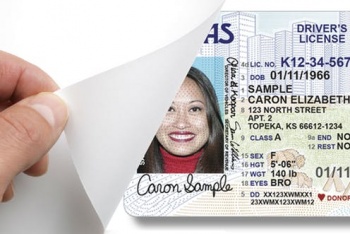Doxxing
Contents
Background
The word doxxing comes from the word “docs” in reference that in many cases it is documented that is released in order to remove anonymity [4]. Doxxing initially started around the early 2000s when social media started to become popular and internet users started to post information our themselves online [5]. Social media has played a large part in the increasing problem of this issue as well as the increased accessibility to public records. A doxxer uses a small amount of information, such as an email address or part of a name, to trace another online user to other social media accounts and platforms. Once the information is put all together it is leaked online for the public to see, taking away not only the user’s anonymity but the right to their privacy. Anonymity plays a large role in the participation of doxxing. More people feel safe participating in this form of online harassment because they, themselves are protected by anonymity.
Ethical Implications
Anonymity
Anonymity is an important value of the internet that many users hold dear. Not only does it allow users to post freely without revealing who they are, it allows them to control their accessibility to other; meaning, as Ruth Gavinson claims, “the extent that they are known to others, the extent to which other has physical access to them and the extent to which they are the subject to others’ attention” [6]. Anonymity allows users to limit the extent to which they are known to others by controlling what information about themselves they choose to disclose. With doxxing, users, now turned victims, no longer control information that is important or private to them, reducing their ability to decide what to reveal and who to reveal it to [7]. Doxxers take away their victims’ rights to anonymity resulting in a loss of their identity.
Privacy
While anonymity allows actions to be seen while maintaining a private identity, privacy controls who sees the information posted online. This means anyone can see who posts information online, but the owner of the information can control who sees it [8]. Privacy means that one is entitled to the information that they post online and views it. Doxxers break their victims right to privacy by releasing personally identifiable information they chose to privately disclose to the public.
Harassment
When doxxing occurs, doxxers release personal information about their victims which can include links to their social media accounts, phone numbers, addresses, email address and other ways of contacting them which in many cases, results in the harassment and ridicule of their victims. This harassment not only includes threats of personal harm, death, and harm to loved ones. As in the case of gamergate, doxxers provided enraged gamers with the means to contact Zoe Quinn resulting in death, rape threats and the public questioning of her ethical morals. Another form of harassment that is very common with doxxing is swatting. Swatting occurs when an emergency service is called to the home of a victim with a report of a serious crime such as murder or a kidnapping [9].
Examples of Doxxing
Kyle Quinn
Gamergate
Gamergate is a controversy that occurred in August 2014 after Zoe Quinn, a female video game creator, released a video game Depression Quest. She started to receive backlash after her ex-boyfriend posted screenshots of their Facebook messenger conversations stating that Quinn participated in sexual relations with the journalist who reviewed her games raising a question of journalism ethics. The campaign #gamergate started as a result of these suspicions leading to the doxxing and harassment of Quinn. Her life was threatened, and she received threats of rape once her personal information was leaked online [12].
Anonymous
Anonymous is an active group of hacktivist that frequently uses doxxing in order to combat censorship and promote freedom of speech [13]. The group hacks personal emails, government websites or gather personal information about their victims to release online to the public [14].
In December 2011, Anonymous hacked Stratfor Global Intelligence Service, an American geopolitical intelligence platform, and released their confidential client list to the public. Included on the list were the clients' email addresses and credit card information. Notable clients included Bank of America, the Defense Department, Doctors without Borders and the United Nations [15].
How to Prevent Doxxing [16]
- Be aware and limit the amount of information that you share online. Sharing even small information such as your name, birthday or email address can be used to find other, more identifiable and personal information.
- Never shares identifiable information on public forums or to a stranger.
- Review the privacy settings on your social media and online accounts regularly. Consistently checking your privacy settings allows you to ensure that you are not sharing more information that you do not intend to.
- Use a variety of usernames. Using the same username across many different platforms makes it easier for doxxers to find your information and connect all your accounts together.
- Using a VPN or proxy server to encrypt your data and hide your information from hackers.
See Also
References
- ↑ Stein, Joel. “How Trolls Are Ruining the Internet.” Time, 18 Aug. 2016.
- ↑ Synder, Peter. Fifteen Minutes of Unwanted Fame: Detecting and Characterizing Doxing. pp. 1–13, Fifteen Minutes of Unwanted Fame: Detecting and Characterizing Doxing.
- ↑ Hoyt, Alia. “10 Forms of Online Harassment.” How Stuff Works.
- ↑ Garber, Megan. “Doxing: An Etymology.” The Atlantic, 6 Mar. 2014.
- ↑ B, Amanda. “Doxing.” Know Your Meme, 2015.
- ↑ Gavison, Ruth. Privacy and the Limits of Law, 89, no. 3, Jan. 1980, pp. 421–471.
- ↑ Douglas, David M. Doxing: A Conceptual Analysis, vol. 18, no. 3, pp. 199–210.
- ↑ Webb, James. “Anonymity vs Privacy vs Security.” HighSpeed Experts, 17 Jan. 2018.
- ↑ Mantilla, Karla. Gendertrolling: How Misogyny Went Viral: How Misogyny Went Viral.
- ↑ Grens, Kerry. “So You’Ve Been Mistaken as a White Nationalist.” The Scientist, 18 Aug. 2017.
- ↑ Amateur Sleuths Aim to Identify Charlottesville Marchers, but Sometimes Misfire
- ↑ Massanari, Adrienne. #Gamergate and The Fappening: How Reddit’s Algorithm, Governance, and Culture Support Toxic Technocultures, 2017.
- ↑ Sands, Geneva. “What to Know About the Worldwide Hacker Group ‘Anonymous.’” ABC News, 19 Mar. 2016.
- ↑ Bergal, Jenni. “Hacktivists Launch More Cyberattacks Against Local, State Governments.” PBS News Hour, 10 Jan. 2017.
- ↑ Perlroth, Nicole. “Hackers Breach the Web Site of Stratfor Global Intelligence.” The New York Times, 25 Dec. 2011.
- ↑ Collins, Jerri. “Doxing: What It Is and How to Fight It.” Lifewire, 3 Jan. 2019.

